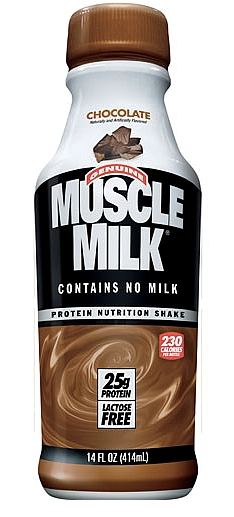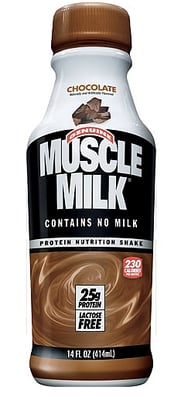Open any health and fitness magazine, and you're sure to find at least one article singing the praises of protein. This macronutrient has recently caught the attention of dieters, exercise enthusiasts, and those who are simply looking to improve their diets. According to the Centers for Disease Control and Prevention, proteins are part of every organ, cell, and tissue of our bodies.
Read on to find out why protein has enjoyed so much great PR and how consumers are changing their diets to increase their protein intake.
What Are the Health Benefits of Protein?
The health benefits of protein are a hot topic of discussion among nutrition enthusiasts, largely because protein performs so many functions. Its primary task is to facilitate the growth and health of every cell and structure of the body. Everything, from our bones to our blood cells, needs sufficient protein for optimal health. These nutrients are also the primary component of enzymes, which are molecules that enable the body's chemical processes, such as digestion. Finally, proteins play an important role in the production of hormones like insulin, estrogen, testosterone, and thyroid hormones.
When it comes to your protein intake, think big. According to Dr. Donald Layman, a professor emeritus of nutrition at the University of Illinois, most adults would benefit from eating more than the 46-56 grams a day recommended by the FDA.
 Why Is Protein So Popular?
Why Is Protein So Popular?
From dropping excess pounds to building muscle mass, dietary protein is one of the key nutrients that our bodies need for optimal health. However, bodybuilders aren't the only ones who need to fill up on protein; high protein diets are linked to fewer incidences of obesity, Type 2 diabetes, and heart disease. For this reason, protein is one of the emerging markets of which business owners are taking note.
Different Types of Protein
Proteins are comprised of amino acids, which are molecules that are made up of varying combinations of oxygen, carbon, nitrogen, and hydrogen. While our liver can manufacture some of these amino acids, our bodies rely on food to provide the essential amino acids.
Proteins fall into two categories: complete proteins and incomplete proteins. A complete protein is one that provides all of the essential amino acids. Animal-based proteins, such as meat, fish, poultry, eggs and dairy, are considered to be complete proteins.
Incomplete proteins are those that are low in essential amino acids. Grains, legumes, plant-based proteins may provide some essential amino acids, but are generally not believed to contain all the essential amino acids that our bodies need. Nutritionists recommend that people who get most of their protein from plant-based sources, such as vegans or vegetarians, eat a wide variety of foods to ensure that they take in all the amino acids necessary.
Following a High Protein Diet
In spite of common health problems associated with high carbohydrate intake, carb-heavy diets may still be the norm; after all, look at the starch-laden shelves of grocery stores. Breads, baked goods, snack cakes, pastas - these are the staples of the average American pantry. However, as the health benefits of a high protein diets are more widely discussed, more and more people are beginning to shift their dietary habits.
For those concerned about increasing their protein intake, protein-enhanced foods and beverages are a great option. Not only do they taste great, they are also a convenient way to curb hunger and enjoy the multitude of benefits that protein provides.
Bernick's Offers Protein-Enhanced Products
At Bernick's, we have a reputation for having a unique understanding of the interests and concerns that drive our customers. We offer a range of protein-enhanced products to meet the needs of our health conscious clients, including Starbucks Doubleshot Coffee + Protein, Protein2o, Protein Bars from Gatorade, Muscle Milk, and the Original Protein Shot. Interested in learning more about our protein-enhanced products? Let us know!


